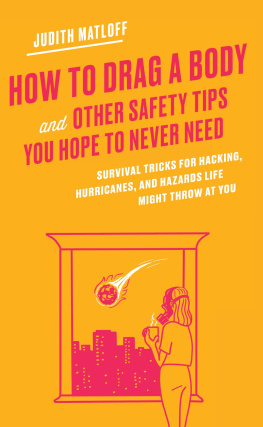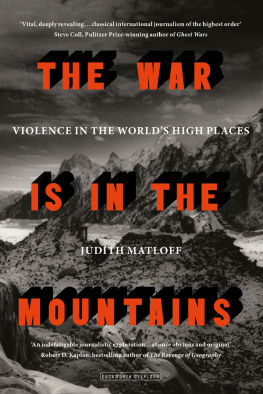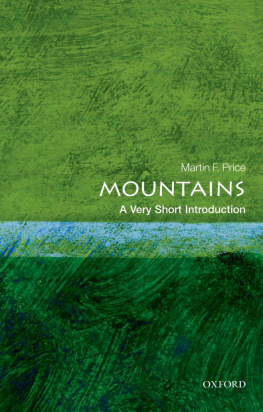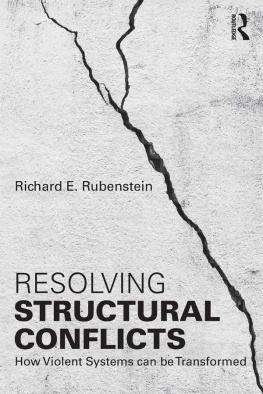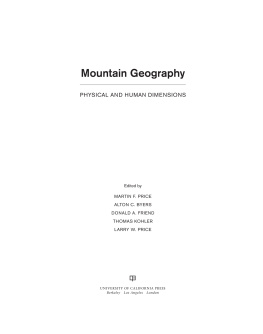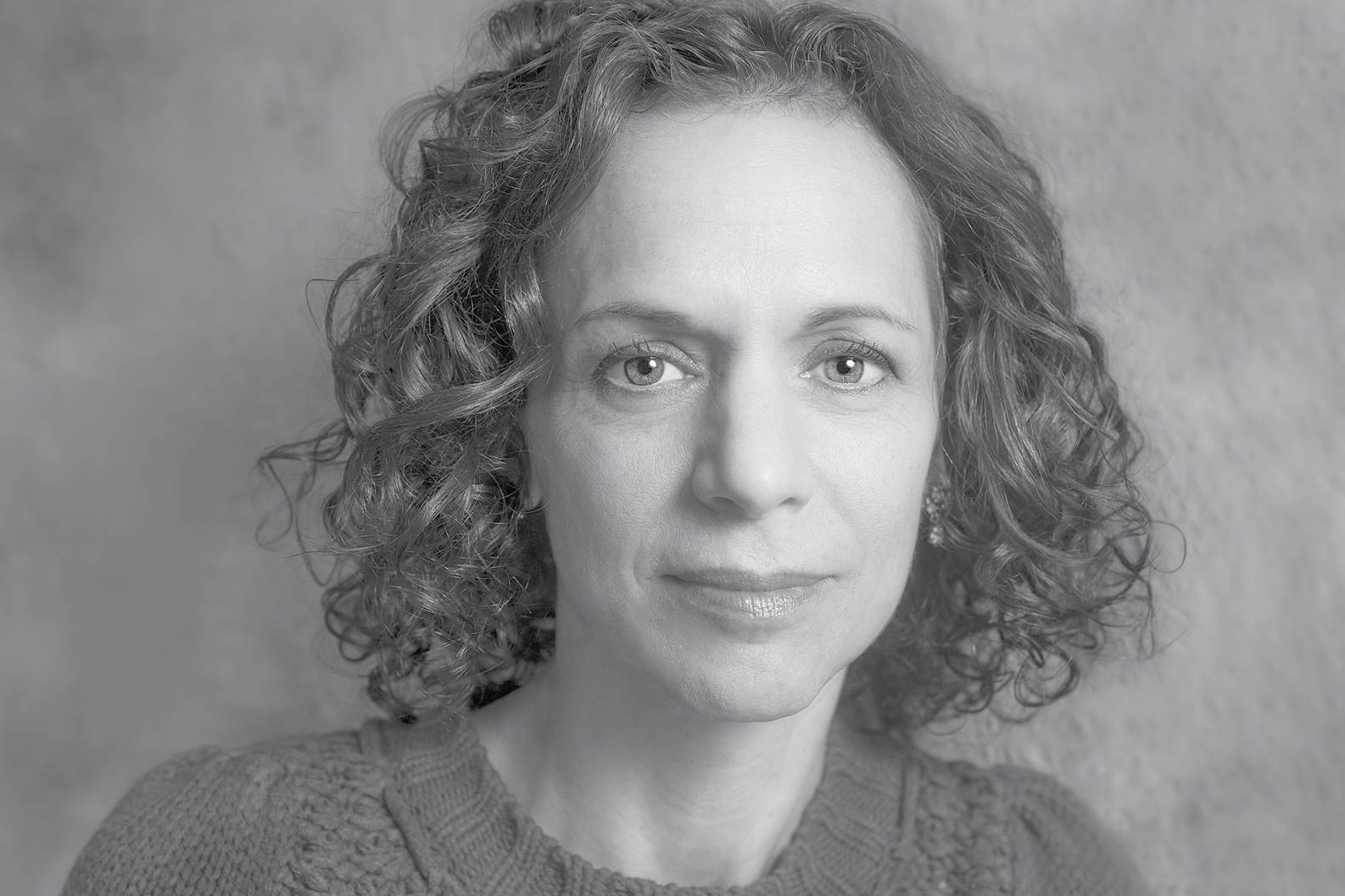Mountaineering requires a team of experts, and an author attempting to scale literary heights needs Sherpas, benefactors, guides, and fellow travelers to get to the top. My squad was brilliant.
Helping from the first plan to the summit was my splendid agent Joy Harris. She seized upon the book idea during a casual dinner conversation seven years ago and ensured I didnt slip through any crevasses along the journey. I am equally indebted to the resplendent Alison Mackeen, who shepherded the proposal to Basic Books and continued to supply encouragement thereafter. One couldnt find better advocates.
Dan Gerstle at Basic steered me on track with his sharp edits and sharper deadlines. Climbing is all about overcoming limitations, and Dan pushed me to think bigger. Kudos, too, to the rest of the crew, particularly copy editor Bill Warhop whose keen eye kept errors at bay. I am further indebted to my researchers Naomi Cohen and Sulaf Elsalfiti, who somehow find information no one else can. Adam Reed helped me navigate oft-challenging technology.
Lucky is the author with bighearted friends. Mine were willing to plow through coarse drafts and suggest changes that profoundly improved the manuscript. A cornucopia of gratitude to my writing buddy Randi Epstein, and to Wylie OSullivan, Bridget OBrian, Lieutenant Colonel Justin Davis, Louisa Campbell, Paul Gillingham, Mary DAmbrosio, Paula Span, Alice Eve Cohen, Jon Reiner, and Annika Savill. The folks at the Invisible Institutewho prefer to remain invisiblesupplied moral support.
Foreign research demands hefty budgets. I could not have traveled to Kashmir and Mexico without generous funding from the Fulbright Scholar Program, South Asian Journalists Association and the Dart Center for Journalism & Trauma. Some of the material was road tested in magazines before migrating to the book. Thanks to the following publications for commissioning stories and granting permission to reprint portions: World Policy Journal, The World (Chatham House), Columbia Journalism Review, Christian Science Monitor, Al Jazeera America, Lactualit, The Forward.
A seventy-thousand-mile trek would be unbearable without companions. I owe appreciation to the photographers barely mentioned but who provided entertaining conversation and contacts on the road. Robert Nickelsberg, Russ Finkelstein, Alicia Vera, Katie Orlinsky, Diana MarkosianI wouldnt have made it without you.
You cant roam far-flung places without the assistance and expertise of locals. Aside from the people quoted in the book, I benefited from meeting so many others, among them:
In Albania: Elsa and Elidona Ukcamaj, Tonin Vocaj, Zyhdi Dervishi, Agim Loci, Bardha Caushi, Marc Wiese, Orgent Niko. Manushage Haxhia, Gjin Marku, Astrit Villi, and Sokol Albaniet.
Mexico: Romn Hernndez Rivas, Nick Casey, Jorge Chabat, Ral Mendoza, Miguel ngel Paz, Jon Fox, John Burstein, Isan Mandujano, Vctor Hugo Lpez, Marina Page, Ross McDonnell, Ral Vega, Ernesto Gallardo, and Severo Castro Godines.
Colombia: Ariel vila, Todd Howland, Jon Hairo, Jahel Quiroga Carrillo, Tefilo Vsquez, Carlos Humberto, Jairo Samboni, William Balaguera, Lieutenant Colonel Jason Velandia, Patricia Velez Romero, Yisela and Marina Goilondo, Marisa Horta Mogollan, Heriberto Baso, and Florinda Ziga.
Nepal: Anup Kaphle, Christopher Butler, Devi Rai, Temang Tahal Rai, Dambar Rai, Devrag Rai, and Deepak Adhikari.
The North Caucasus: Kathy Lally and Will Englund, Tanya Lokshina, Bela Khadzimouralova, and the human rights activists and dissidents who requested anonymity.
Kashmir: Basharat Peer, Deepak Puri, Yusuf Jameel, Imdad Saqi, Surinder Singh Oberoi, Muhammed Altaf Masoodi, Akke Dari Naheed, Farooq Ahmad Bhat, Ghulam Nabi Dar, Hameeda Nazir, Wasim Bhat, Takhliq Ali, Pervez Imroz, and more who wish to remain unnamed.
Vermont: Sergeant First Class Christopher Bushway, Master Sergeant Thomas Kontos, Captain Chad Dearborn, Major John Guyette, and Personnel Officer Therese Farrell.
The Arctic: Lieutenant Colonel John Espen Lien, Major Leif Bygdnes, Captain Sven-Kristian Lotveit, Major Helge Dale, Sergeant Bertie Bassett, Major Simon Guest, Captain Baz Colarusso, Private Olov Kris Rorvik, Major Jason Milne, Colonel Geir Gillebo, Geir Nordrum, First Lieutenant Jack Parnell, Lieutenant Colonel Kurt Malme, Lieutenant Colonel Lars Roine, and Major Jan Helge Dale.
Switzerland and France: Carolus and Maria van Schaik, Judith Burkart, Marthe Clot, Matthieu Calame, and Denis Balmont.
My beloved son and husband could hardly have anticipated that a random board game would lead to long absences and the many sacrifices inflicted by writers on their families. Mountains and mountains of love to Anton and John. This book is dedicated to you.
Credit: Glenn Jussen
JUDITH MATLOFF teaches conflict reporting at the Columbia Graduate School of Journalism. Her articles have appeared in the New York Times Magazine, The Economist, and Financial Times among others. Matloffs writing about troubled regions has been supported by various organizations including the MacArthur Foundation, Fulbright Scholar Program, and Hoover Institution. After reporting from five continents she now lives in New York City.
I found the opening translated epigraph by Ibsen on http://www.poetry-archive.com/i/mountain_life.html.
I NTRODUCTION : A T OWERING P ROBLEM
The poem by George Sterling appears in Beyond the Breakers, and Other Poems (Nabu Press, 2009).
I discussed the link between mountains and resistance with Yale anthropologist James C. Scott. His acclaimed The Art of Not Being Governed (Yale University Press, 2009) examines a territory transcending nine national borders whose diverse hill tribes shared an aversion to central authority. Scott attributes their distaste to central authority to a landscape that allowed people to run away and remain apart from the mainstream.
I turned to Roderick Peatties Mountain Geography: A Critique and Field Study (Harvard University Press, 1936) for excellent background reading on mountain topography. Peattie was a prominent geographer interested in both the physical features of mountains and the humans living among them. Another book that helped orient me was Robert E. Rhodess Listening to the Mountains (Kendall/Hunt Publishing Company, 2007). This short collection of essays is a cri de coeur about the damage wrought by lowland powers. The anthropologist dedicated his career to studying mountain societies, and coined the academic term montology.
I first became aware of the scale of conflict in mountains in a report, Conflict and Insecurity in Mountain Regions: A Barrier to Sustainable Development, by the Food and Agriculture Organization of the United Nations in its journal (Unasylva 53, no. 208) released during the 2002 International Year of the Mountains; its online at www.fao.org/docrep/fao/004/y3549e/y3549e00.html. The report amply supports my sons observation that mountains can be violent places, for a variety of reasons.
The observations of Fernand Braudel about mountain people are found in The Mediterranean and the Mediterranean World in the Age of Philip II, vol. 1 (University of California Press, 1995). Braudels descriptions of blood feuds and tribal councils in the region, first published in 1949, bear a strong resemblance to the current situation in Albania.
To get the full flavor of Ellen Churchill Semples worldview, read her


